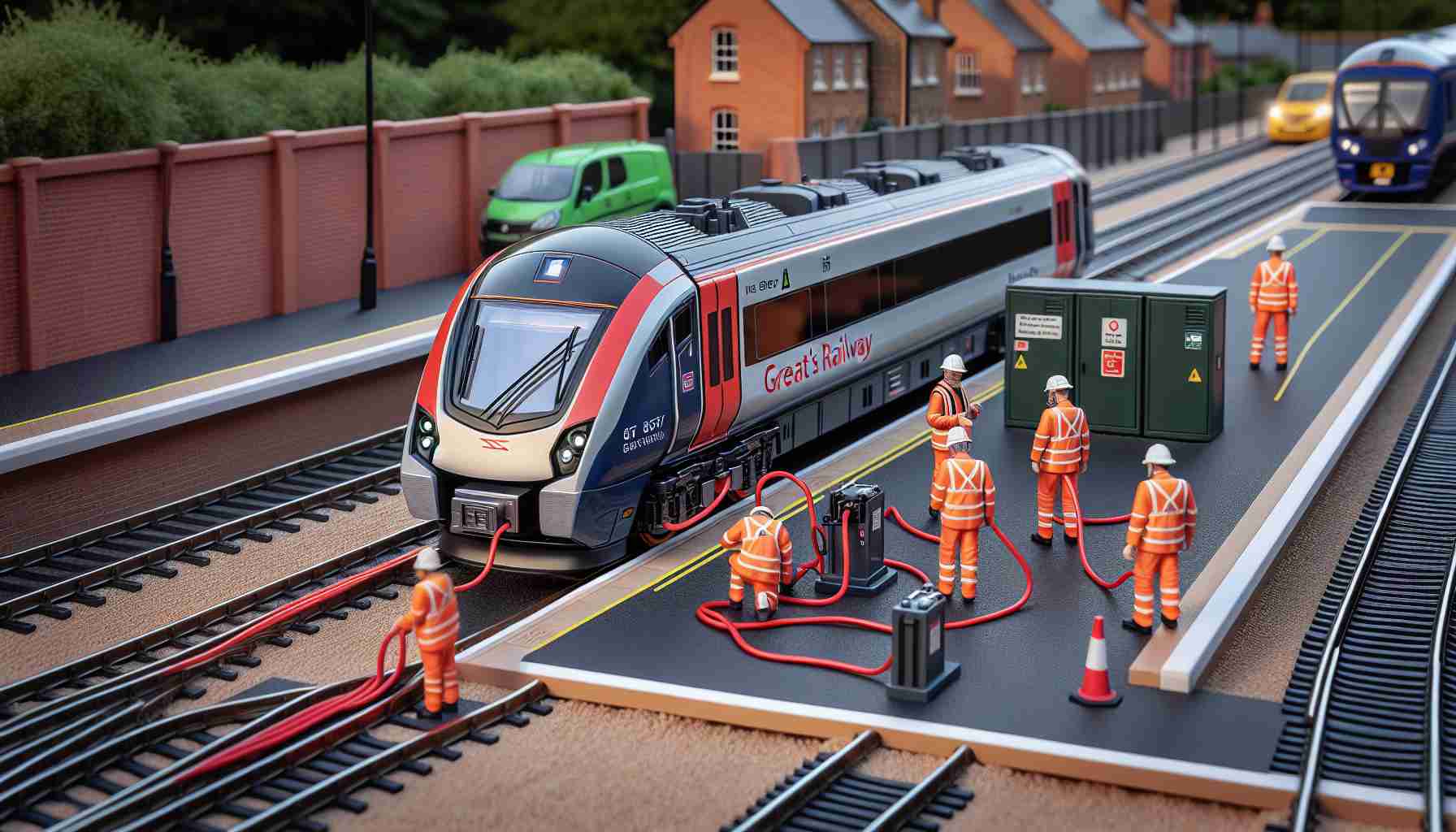UK railways (GWR) are planning to conduct trials of FastCharge technology on their trains. The trials are set to begin this spring in West London. This technology, which allows trains to be charged with up to 2000 kW of power (8 times more than Tesla’s Supercharger), has been developed over the past three years and aims to solve the problem of providing reliable service using battery-powered trains.
The first trials will be conducted on the West Ealing lines using trains that have been adapted from London Underground units. Trains on this line will be charged in just 3 and a half minutes before resuming their journey on the Greenford Branch line. By utilizing battery-powered trains, there is no need to build costly overhead power lines, which can impact the landscape.
GWR intends for the FastCharge technology to pave the way for a greater number of battery-powered trains in the UK. Unlike other charging systems, FastCharge can be installed between the rails within hours, with minimal disruption to passengers.
The FastCharge system utilizes short charging rails that are fully enclosed and only active during charging. This is an advantage over traditional third-rail systems used in London and on the MerseyRail network, where the electric traction remains live at all times.
GWR has already conducted simulations on branch lines in the Thames Valley area to explore the possibility of scaling up the technology in the future. Tests have been carried out on test tracks at the Rail Innovation Centre in Long Marston, and battery-powered Class 230 trains have begun testing on the main line between Long Marston, Evesham, Honeybourne, and Moreton-in-Marsh, before heading to GWR workshops in Reading and then to West Ealing.
Dr. Simon Green, Head of Engineering at GWR, said: “The work that we are doing is completely innovative. We are helping the Department for Transport and the UK rail industry understand how to implement this technology on our rail network. It is only now that the combination of battery power and charging technology has come together to enable trains to operate to timetable like diesel units, but in a safe and minimal impact energy supply to the local grid.”
Rob Cairns, Interim Regional Director at Network Rail, stated: “This trial is an important step towards sustainable transport in the UK. Rail is already the most environmentally-friendly mode of public transportation, and battery-powered trains have the potential to play a crucial role in our low-emission railway strategy, aiming for net-zero emissions by 2050.”
Frequently Asked Questions (FAQ) based on the main topics and information presented in the article:
1. What is FastCharge technology?
FastCharge technology, being tested by UK Railways (GWR), allows trains to be charged with up to 2000 kW of power. This is eight times more charging power than Tesla’s Supercharger.
2. How long does FastCharge technology take to charge trains?
Trains on the West Ealing line will be charged in just 3 and a half minutes before they can continue their journey on the Greenford Branch line.
3. How does FastCharge technology impact the landscape?
By utilizing battery-powered trains, there is no need to construct expensive overhead power lines that could impact the landscape.
4. What are the advantages of the FastCharge system?
The FastCharge system utilizes short charging rails that are fully enclosed and only active during charging. Unlike traditional third-rail systems, the FastCharge system doesn’t require continuous live electric traction.
5. Will FastCharge technology be implemented on a larger scale in the future?
GWR has already conducted simulations on branch lines in the Thames Valley area and plans to implement the technology on a larger scale in the future. Testing of battery-powered Class 230 trains has already begun on the mainline railway.
Suggested Related Links:
– Great Western Railway (GWR) website
– Network Rail website
The source of the article is from the blog reporterosdelsur.com.mx
